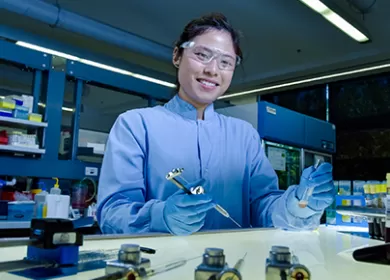How does the Australian Blood Donor Study (ABDS) link to other projects at Lifeblood?
The information and samples you provide for the ABDS will be used in multiple studies. Even if you can’t provide a sample on the day, your responses to the survey questions are important.
Donor psychology and future donation behaviour
A team led by Prof Barbara Masser and Lifeblood’s Donor Research team will use some of your answers to explore how donation behaviour can change over time. We’ll use this information to help recruit new donors and improve the experience for all donors.
Maintaining your iron stores and donation behaviour
We’ve asked you questions about using iron supplements and eating iron-rich foods after you donate. You’ll help us understand how donors replenish the iron they’ve lost during donation and what strategies we can suggest to other donors.
Familial pseudohyperkalaemia
Lastly, you may remember reading in the consent form about a study looking at familial pseudohyperkalaemia . A team led by A/Prof Denese Marks have been using your samples to screen for genes responsible for the condition to determine how common it is in Australia. It’s harmless for those who carry it, but means that their blood doesn’t store well and could be harmful to a patient who receives it.
Recent publications from the study
Willingness of blood donors in Australia to provide additional data and blood sample for health research. Karki S, Gemelli CN, Davison TE, Masser BM, Marks DC, Bell K, et al. Transfusion. 2021; 61: 2855–2861. https://doi.org/10.1111/trf.16629
Learn more about the different projects that will depend on your survey responses and blood samples.
